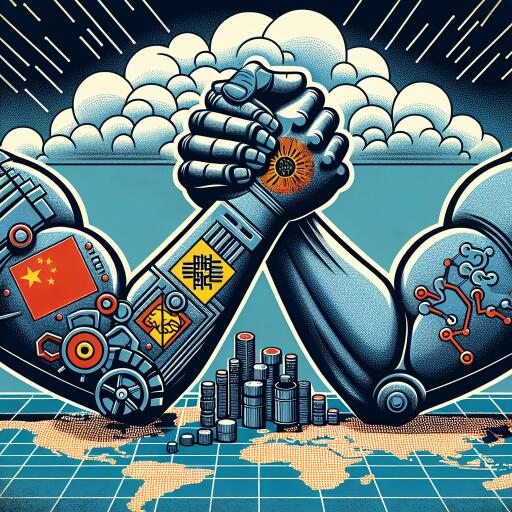China’s Anti-Dumping Probe into Imported Chemical Escalates Trade Tensions
Recent developments have marked an escalation in international trade tensions, catalyzed by China’s initiation of an anti-dumping investigation into imports of polyformaldehyde copolymer—a crucial engineering chemical—from key global players including the EU, US, Japan, and Taiwan. This move comes amidst a backdrop of increasingly strained trade relations, highlighted by reciprocal anti-dumping and anti-subsidy investigations and the imposition of tariffs across these major economies.
Polyformaldehyde copolymer, also known as POM copolymer, is a highly versatile engineering thermoplastic widely used across a diverse range of applications. Its uses span automotive and electronic components, industrial machinery, sports equipment, medical devices, pipe fittings, and even certain building materials, due to its ability to effectively replace traditional metals such as copper, zinc, tin, and lead in many contexts.
The investigation by the Chinese Ministry of Commerce was set off by a request from six domestic producers in April, citing concerns over unfair competitive practices through dumping. This probe is scheduled for conclusion within a year, though extensions up to six months are potentially on the table for exceptional situations.
The international community has been witnessing a tit-for-tat series of trade investigations and tariffs. For instance, the European Union recently launched an investigation into Chinese exports of tin-plated steel, among other goods, as a protective measure for its domestic industries. In a parallel vein, the United States, under the directive of President Joe Biden, enacted new tariffs targeting a broad swath of Chinese exports including electric vehicles, advanced batteries, solar cells, and various metals, citing the provision of unfair government subsidies to these industries by China as the primary concern.
These actions align with the stance of the US and EU concerning China’s extensive industrial policies, which they claim distort global markets and impinge upon the competitive integrity of international trade. Notably, the White House has taken a hard stance against what it describes as “China’s unfair trade practices” relating to technology transfer, intellectual property, and innovations. It articulates a direct response to safeguard American industries and workers from these perceived injustices, highlighting the threat posed by China’s substantial control over global production capacities in crucial technological and industrial sectors.
Additionally, concerns over China’s role in global “industrial overcapacity” and its ripple effects on domestic businesses in the US and EU have been voiced. These concerns were underscored by discussions held between US Treasury Secretary Janet L Yellen and Chinese officials earlier this year. Despite the dialogues, the US delegation persisted in highlighting the challenges posed by China’s non-market practices and the issues of industrial overcapacity.
The unfolding situation brings to light the complex web of economic and political dynamics that govern international trade relationships. As these investigations progress and new policies are enacted, the global community watches closely, understanding that the outcome of these tensions could redefine trade norms and practices for years to come.
As all parties navigate through these charged waters, the implications of these disputes stretch beyond mere trade balances, hinting at deeper shifts in international diplomacy, economic strategy, and the global quest for a fair and equitable market landscape.
